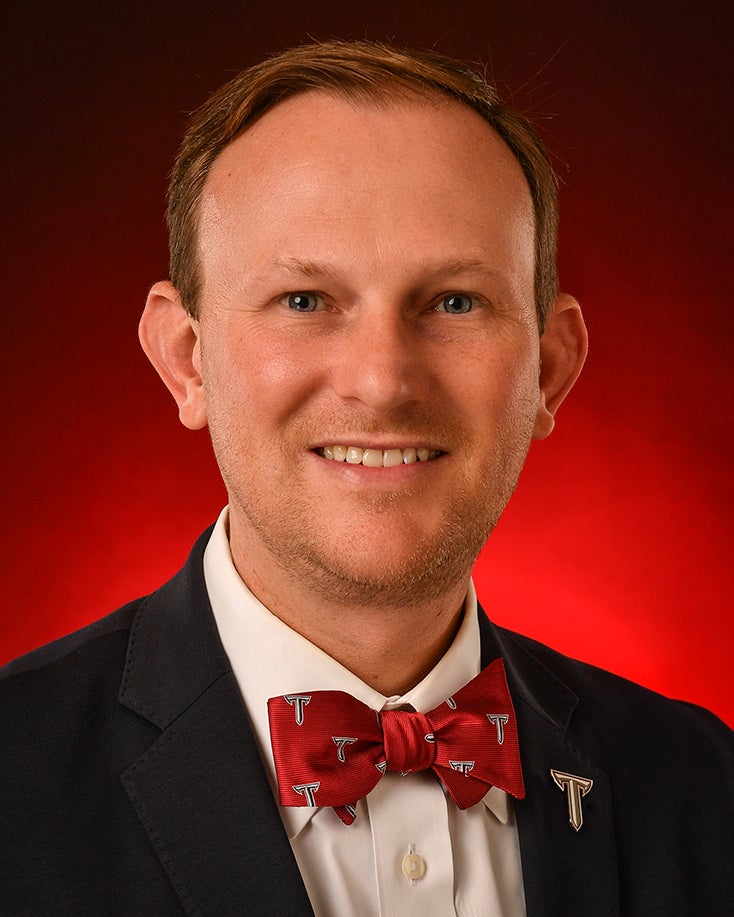COLUMN: Of Work and Generational Conflict
Published 7:57 am Tuesday, February 27, 2024
|
Getting your Trinity Audio player ready...
|
By Allen Mendenhall
Allen Mendenhall is Associate Dean and Grady Rosier Professor in the Sorrell College of Business at Troy University and Executive Director of the Manuel H. Johnson Center for Political Economy.
A recent report by ResumeBuilder.com found that 31% of employers won’t hire Gen Z candidates. Another 30% claimed they fired Gen Z employees who were on the job a month or less.
Why is this happening? The proffered reasons are that youth dress inappropriately, communicate poorly, request higher pay than is warranted, and avoid necessary tasks.
The company TrueBlue warns that 90% of human resources managers believe half their workforce needs retraining within five years. Why? Talent shortages and skills gaps.
“Kids these days” is a perennial complaint, but maybe there’s more to this story.
The new generation of workers—say, ages 18-25—grew up on social media and smartphones and suffered through the coronavirus pandemic, an alienating period of distancing and isolation, lockdowns and quarantines, downturn and depression, stagnation and strife. Early career professionals have trouble assimilating into the workforce because their social habits are unlike those of Millennials and Boomers. Reared on memes, tweets, and soundbites, they prefer online to face-to-face interaction.
Is this bad? Perhaps. It’s too early to tell.
Some eras undergo dramatic changes that shock older generations. Johannes Gutenberg’s printing press revolutionized Europe, enabling the mass production of books, the dissemination of groundbreaking ideas, mass literacy, scientific progress, and resurgent arts and culture. It also caused religious wars and class conflict.
The Industrial Revolution shifted the commercial focus from agriculture to manufacturing and urban technology. Although it tolerated poor working conditions and pollution, child labor and rising inequality, it also sparked ingenuity and modernization, vastly improving living standards across the world.
Even during periods of radical disruption, life goes on. Humans adapt to their circumstances and adjust practices to meet novel challenges. Exigencies require invention and entrepreneurship. “He that will not apply new remedies must expect new evils,” declared Sir Frances Bacon, “for time is the great innovator.”
On the other hand, history isn’t a continuous sequence of inexorable progress. Sometimes it involves regress and degeneration. Civilizations once august and glorious collapsed: the Egyptian, Mayan, Khmer, Aksumite, Hittite.
The Fall of Rome led to economic downturn, the loss of infrastructure, and political upheaval that undermined material and intellectual advancement.
Whether our age is one of improvement or decline remains to be seen.
Let’s return from the grand to the practical. If I were a “Gen Zer,” I would use the past as my guide for the future. Historical examples, good or bad, contribute to personal and professional growth. You needn’t reform society writ large; just reform yourself.
Start with small things. Dress appropriately for an interview. Suitable attire is contextual or situational. A job at a law firm is different from occupations on the farm or in factories. Anticipate your audience’s expectations for your appearance and meet them. Don’t expect employers to conform to your standards.
Remain open to continuous learning and different perspectives. Don’t presume you know better or more than others. You may have fresh ideas and unique proficiencies, but stay humble and use those to lift up your peers and organization.
Admit weaknesses and highlight strengths. Collaborate with colleagues who complement your talents. Seek answers. Don’t be ashamed to be wrong or confused.
Monitor your online presence. Do your social media accounts feature words or images you wouldn’t want your grandmother seeing? If so, edit or remove them.
Show gratitude and deference while maintaining confidence and poise. Be diligent and tenacious and don’t presume some task is beneath you. Most importantly, work hard! Complete assignments with excellence.
The novelist Robert Lewis Stevenson furnishes our “Word to the Wise” this week. “The obscurest epoch,” he submits, “is today.” We’re as likely to be as mistaken about essentials as our ancestors were and our posterity will be. In work as in life, for young as for old, we do well to remember that abhorring other generations only invites abhorrence upon ourselves.
Gen Z will grow old and become gatekeepers. The question is, of what?
Note: This piece is adapted from Allen Mendenhall’s regular segment “Word to the Wise” on Troy Public Radio.






